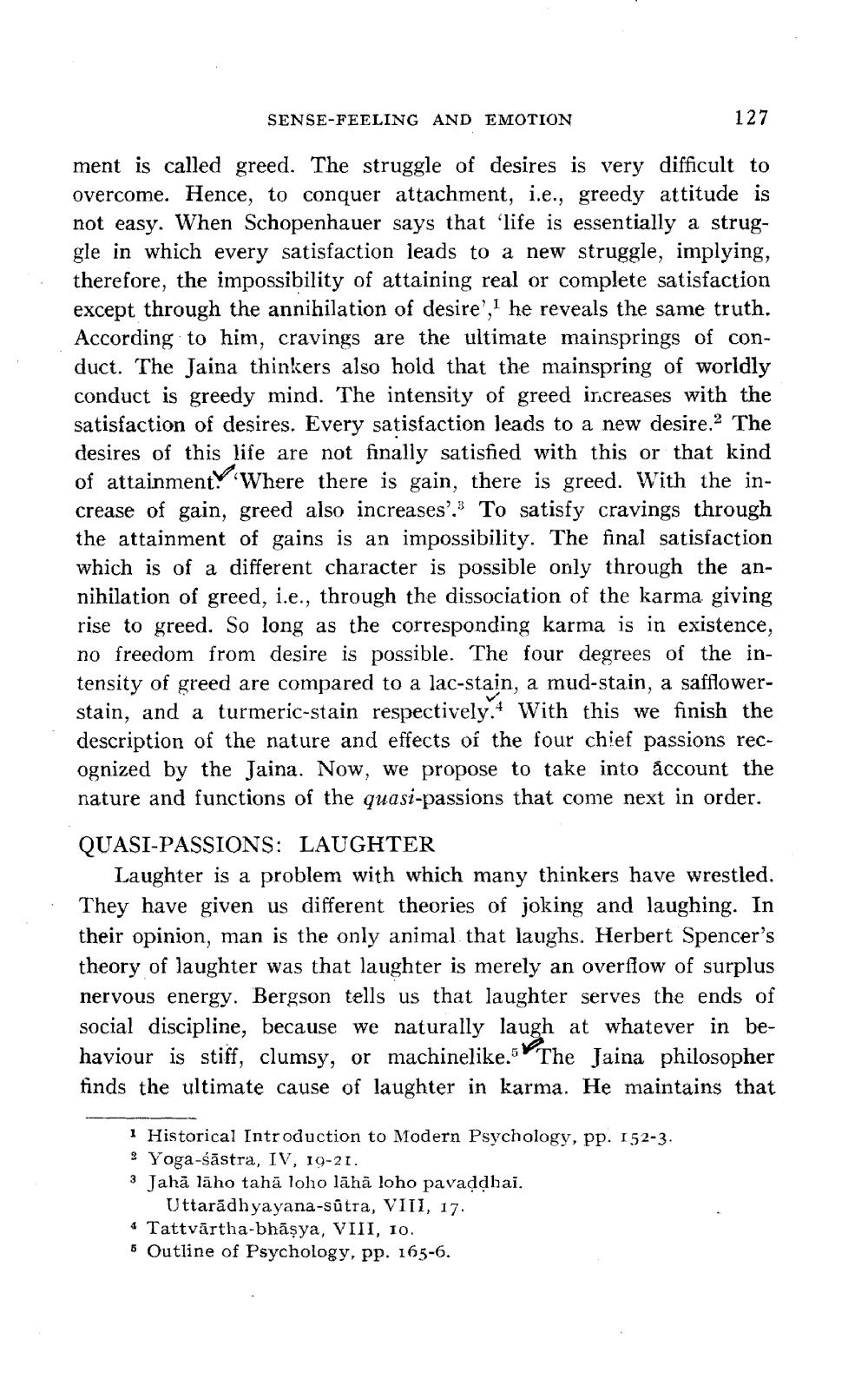________________
SENSE-FEELING AND EMOTION
127
ment is called greed. The struggle of desires is very difficult to overcome. Hence, to conquer attachment, i.e., greedy attitude is not easy. When Schopenhauer says that 'life is essentially a struggle in which every satisfaction leads to a new struggle, implying, therefore, the impossibility of attaining real or complete satisfaction except through the annihilation of desire', he reveals the same truth. According to him, cravings are the ultimate mainsprings of conduct. The Jaina thinkers also hold that the mainspring of worldly conduct is greedy mind. The intensity of greed increases with the satisfaction of desires. Every satisfaction leads to a new desire. The desires of this life are not finally satisfied with this or that kind of attainment Where there is gain, there is greed. With the increase of gain, greed also increases’.3 To satisfy cravings through the attainment of gains is an impossibility. The final satisfaction which is of a different character is possible only through the annihilation of greed, i.e., through the dissociation of the karma giving rise to greed. So long as the corresponding karma is in existence, no freedom from desire is possible. The four degrees of the intensity of greed are compared to a lac-stain, a mud-stain, a safflowerstain, and a turmeric-stain respectively. With this we finish the description of the nature and effects of the four chief passions recognized by the Jaina. Now, we propose to take into account the nature and functions of the quasi-passions that come next in order.
QUASI-PASSIONS: LAUGHTER
Laughter is a problem with which many thinkers have wrestled. They have given us different theories of joking and laughing. In their opinion, man is the only animal that laughs. Herbert Spencer's theory of laughter was that laughter is merely an overflow of surplus nervous energy. Bergson tells us that laughter serves the ends of social discipline, because we naturally laugh at whatever in behaviour is stiff, clumsy, or machinelike. The Jaina philosopher finds the ultimate cause of laughter in karma. He maintains that
1 Historical Introduction to Modern Psychology, pp. 152-3. 2 Yoga-śāstra, IV, 19-21. 3 Jahā lāho tahā loho lāhā loho pavaddhai.
Uttarādhyayana-sútra, VIII, 17. 4 Tattvārtha-bhāşya, VIII, 10. 6 Outline of Psychology, pp. 165-6.




